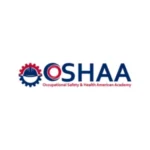OSHAA 30-Hours Professional Diploma
National Surf Coach Lifesaving (NSCL)
Awarding Body
OSHAA
Duration
30 Hours
Course Type
Health & Safety
study mode
Online Learning
Course overview
The OSHAA 30-Hours Professional Diploma in National Surf Coach Lifesaving (NSCL) is a specialized program designed for individuals aiming to become skilled surf lifesaving coaches and leaders. The course combines technical rescue training with leadership and coaching skills, ensuring participants can manage lifesaving activities safely and effectively. By blending surf environment awareness, rescue techniques, risk assessment, and team management, this diploma equips learners with both the practical and theoretical knowledge required for surf lifesaving coaching roles.
Surf lifesaving is not only about performing rescues but also about preventing accidents, building strong teams, and ensuring safe recreational water use. This program provides learners with the expertise to evaluate surf conditions, respond to emergencies, operate lifesaving equipment, and train others in lifesaving skills. Additionally, it emphasizes communication, leadership, and motivation strategies, which are essential for coaching surf lifesavers and managing dynamic rescue scenarios.
The diploma also incorporates environmental and legal considerations, ensuring that learners understand their responsibilities as surf coaches and lifesaving professionals. With a focus on both safety and coaching, this qualification prepares individuals to contribute to community safety, promote surf awareness, and lead teams in high-pressure situations.

satellite centre of Paradigm Us
For OSHAA Qualifications

Entry Requirments
Entry Requirements for the OSHAA 30-Hours Professional Diploma in National Surf Coach Lifesaving (NSCL):
- Educational Qualifications:Learners should have a minimum of secondary school education or an equivalent qualification. Basic literacy and numeracy skills are essential to understand course materials, safety procedures, and assessment requirements.
- Professional Experience:Prior experience in surf lifesaving, swimming instruction, water sports, coaching, or related outdoor and aquatic activities is highly recommended. Individuals currently working or volunteering as surf lifesavers, lifeguards, swimming coaches, or rescue team members will particularly benefit from this programme.
- English Language Proficiency:Since the program is delivered in English, learners must show competence in reading, writing, and communication.
Course structure
The OSHAA 30-Hours Professional Diploma in National Surf Coach Lifesaving (NSCL) qualification consists of 9 mandatory units.






